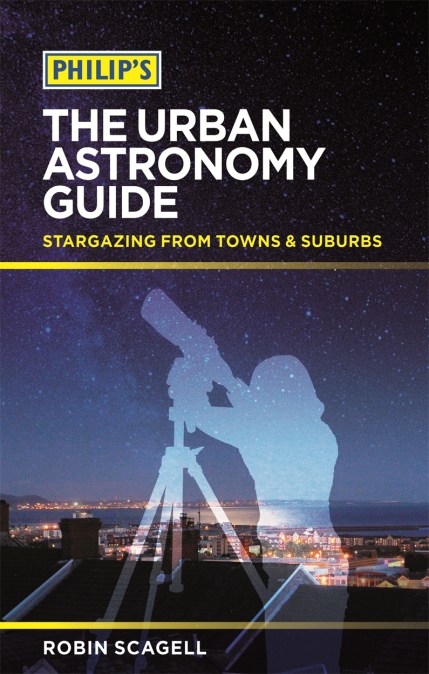Philip’s The Urban Astronomy Guide
On sale
3rd November 2014
Price: £9.99
Selected:
Paperback / ISBN-13: 9781849072755
Philip’s The Urban Astronomy Guide provides the ideal introduction to the fascinating hobby of astronomy for the town dweller. These days, you don’t have to live close to a city or town centre to suffer from the effects of light pollution. From your back garden or rooftop observing site, your night sky will be illuminated by light from the surrounding city or town. And while, like everyone else, you will have to contend with the vagaries of the weather, you will have the added problem of poor air quality. But despite these difficulties, there is still a host of celestial delights to be seen!
In this book, author Robin Scagell shows that night-time lighting and the resultant brightening of the sky can be combated, and demonstrates how to make the best of poor conditions. Although the unaided eye may be able to pick out only a few hundred stars, binoculars or a small telescope will reveal many times that number. A little optical aid can also give you good views of every type of major astronomical object, including star clusters, nebulae and galaxies.
For example, for those who want to develop their interest further, there are special filters that let through the light from distant nebulae while blocking out wavelengths infested by unwanted stray light from streetlights. And modern CCDs allow modest amateur telescopes to penetrate the urban sky glow and reveal sights that would have taxed the largest professional instruments only 30 years or so ago.
Philip’s The Urban Astronomy Guide will show you how to get the most out of almost any sky with whatever equipment you have, or even with none at all.
In this book, author Robin Scagell shows that night-time lighting and the resultant brightening of the sky can be combated, and demonstrates how to make the best of poor conditions. Although the unaided eye may be able to pick out only a few hundred stars, binoculars or a small telescope will reveal many times that number. A little optical aid can also give you good views of every type of major astronomical object, including star clusters, nebulae and galaxies.
For example, for those who want to develop their interest further, there are special filters that let through the light from distant nebulae while blocking out wavelengths infested by unwanted stray light from streetlights. And modern CCDs allow modest amateur telescopes to penetrate the urban sky glow and reveal sights that would have taxed the largest professional instruments only 30 years or so ago.
Philip’s The Urban Astronomy Guide will show you how to get the most out of almost any sky with whatever equipment you have, or even with none at all.
Newsletter Signup
By clicking ‘Sign Up,’ I acknowledge that I have read and agree to Hachette Book Group’s Privacy Policy and Terms of Use

